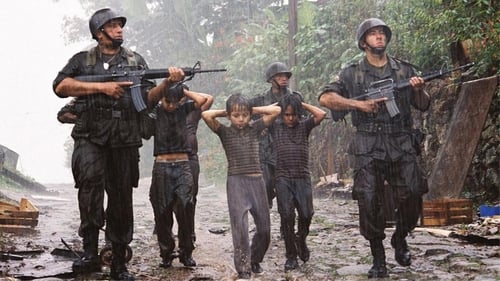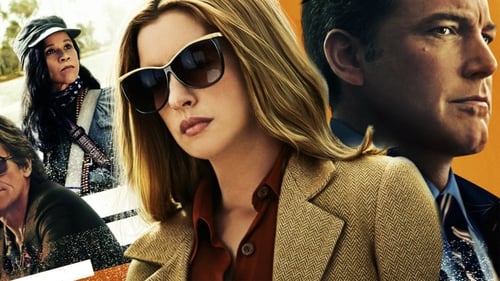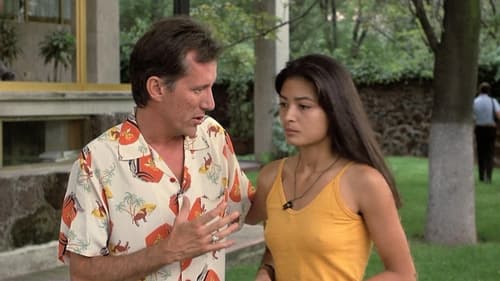Today (2020)
Gênero :
Runtime : 1H 8M
Director : Ricardo B'atz'
Sinopse
In the capital of El Salvador, the drivers of a bus, a taxi, a minibus and a private car confront the ravages of 12 years of civil war that continue to torment the country.

Anos 80. Chava (Carlos Padilla) é um garoto de 11 anos que, após seu pai abandonar a família em meio à guerra civil de El Salvador, se torna o "homem da casa". Por causa da guerra as forças armadas do governo recrutam garotos de 12 anos, retirando-os das salas de aula. Chava ainda tem um ano até ser também recrutado, sendo que neste período precisa conseguir um emprego para ajudar sua mãe (Leonor Varela) a pagar as contas e também escapar da violência diária causada pela guerra civil.

Uma repórter obstinada se envolve na história que investiga quando ajuda o pai a fechar uma negociação de armas na América Central.

Um fotojornalista americano se vê envolvido na luta política em El Salvador, em 1980. Um jornalista, com pouca sorte nos Estados Unidos, vai para El Salvador para reportar os eventos da ditadura militar de 1980, incluindo o assassinato do arcebispo Oscar Romero. Ele faz uma aliança desconfortável com dois guerrilheiros que querem que ele tire fotos para a imprensa americana, e também com os militares de direita, que querem que ele lhes traga fotos dos rebeldes. Além disso, ele tem que encontrar uma maneira de proteger sua namorada salvadorenha e levá-la para fora do país.

Reflects a depressing and hopeless reality by following some of the members of "la dieciocho", the so-called 18th Street gang in a poor San Salvador neighborhood.

A powerful three-part documentary studying the US involvement in Guatemala, El Salvador and Nicaragua. The differing factions - Sandinista leaders, Guatemalan campesinos, CIA operatives, Contras and US government apologists - are interviewed and, in the absence of a controlling narration, the audience is encouraged to draw its own conclusions.

The battle of El Salvador and its revolutionary history, from the time of the Spanish conquest and colonization, to the insurgency of the 80s, approached by a Puerto Rican filmmaker immersed in the conflict. Depicts a host of F.M.L.N. guerrillas marching forth from Monte Alzaco, the spiritual home of Salvadoran resistance.

It is El Salvador, 1989, three years before the end of a brutal civil war that took 75,000 lives. Maria Serrano, wife, mother, and guerrilla leader is on the front lines of the battle for her people and her country. With unprecedented access to FMLN guerrilla camps, the filmmakers dramatically chronicle Maria's daily life in the war.

Two friends decide to spend the last vacation together, before parting their ways forever in a journey they never will forget.

In El Salvador, Chelino tells about the indigenous massacre of 1932, of which he survived, while he teaches the melodies of traditional Salvadoran dances.

January 22, 1932. An unprecedented peasant uprising erupts in western El Salvador, as a group of Latino and indigenous peasants cut army supply lines, attack a military garrison, and take control over several towns. Retribution is swift. After three days, the army and militias move in and, in some villages, slaughter all males over age 12. Elsewhere, they summarily execute anyone suspected of having a link to the Communists. Over the next few weeks, 10,000 people are massacred.

In the early 1980s, at the beginning of what would become a 12-year-long civil war, El Salvador's talented football team was one national institution upon which both the left and the right could agree. When the team pulled off a stunning 1-0 upset against Mexico and qualified to compete in the 1982 World Cup, it was a high point for the tiny country's national pride. Unfortunately, the team's Cinderella story devolved into a nightmarish farce.

The life of a simple piñata salesman named Don Cleo is turned upside down when he falls victim to an extortionist he can’t possibly afford to pay. The harder he tries to raise the funds, the deeper into trouble he gets. If Don Cleo hopes to survive, he’ll have to face his fears and stand up to his tormentors.

Return to El Salvador explores the reconstruction of El Salvador, post-civil war. The film revisits the struggles of the nation and examines what drives over 700 Salvadorans to flee their homeland each day, often risking their lives to illegally enter countries in search of a better life for their families. The film also profiles a number of Salvadorans effected by the civil war. One couple, who fled death threats in the 1980s, finds asylum and a political platform in the United States. The film also follows a different couple who, after escaping the war, returned to El Salvador to work with churches and poor communities.

Olivia is a disturbed woman who shows some signs of amnesia and madness. Accompanied only by Esther, she fantasizes that some day her beloved Julio will return, but he only writes her letters. Esther, however, keeps a terrible secret from her.

An experimental short film about a day in the life of a barefoot boy who sells newspapers in San Salvador.

This Traveltalk series short starts in San Salvador, El Salvador's capital, emphasizing the Spanish architectural heritage. We then go to the Izalco Volcano, which was created in 1770 by an eruption of the Santa Ana Volcano. The focus then shifts to the country's agriculture. The two main products are coffee and henequen, a plant with tough, fibrous leaves used to make rope, baskets, and other products.

In the capital of El Salvador, the drivers of a bus, a taxi, a minibus and a private car confront the ravages of 12 years of civil war that continue to torment the country.





